For a series that comprises crime, drama, action and thriller, and being the first original Indian Netflix show, Sacred Games is turning a lot of heads and garnering lots of interest already. It is based on Vikram Chandra’s 2006 thriller novel Sacred Games, which is loaded with political drama and directly addresses the story of how Bombay turned into Mumbai, the capital city of Maharashtra. We sat with the main cast and directors of the show at a roundtable organized by Netflix in Dubai. Here are the highlights of the conversations that went on.
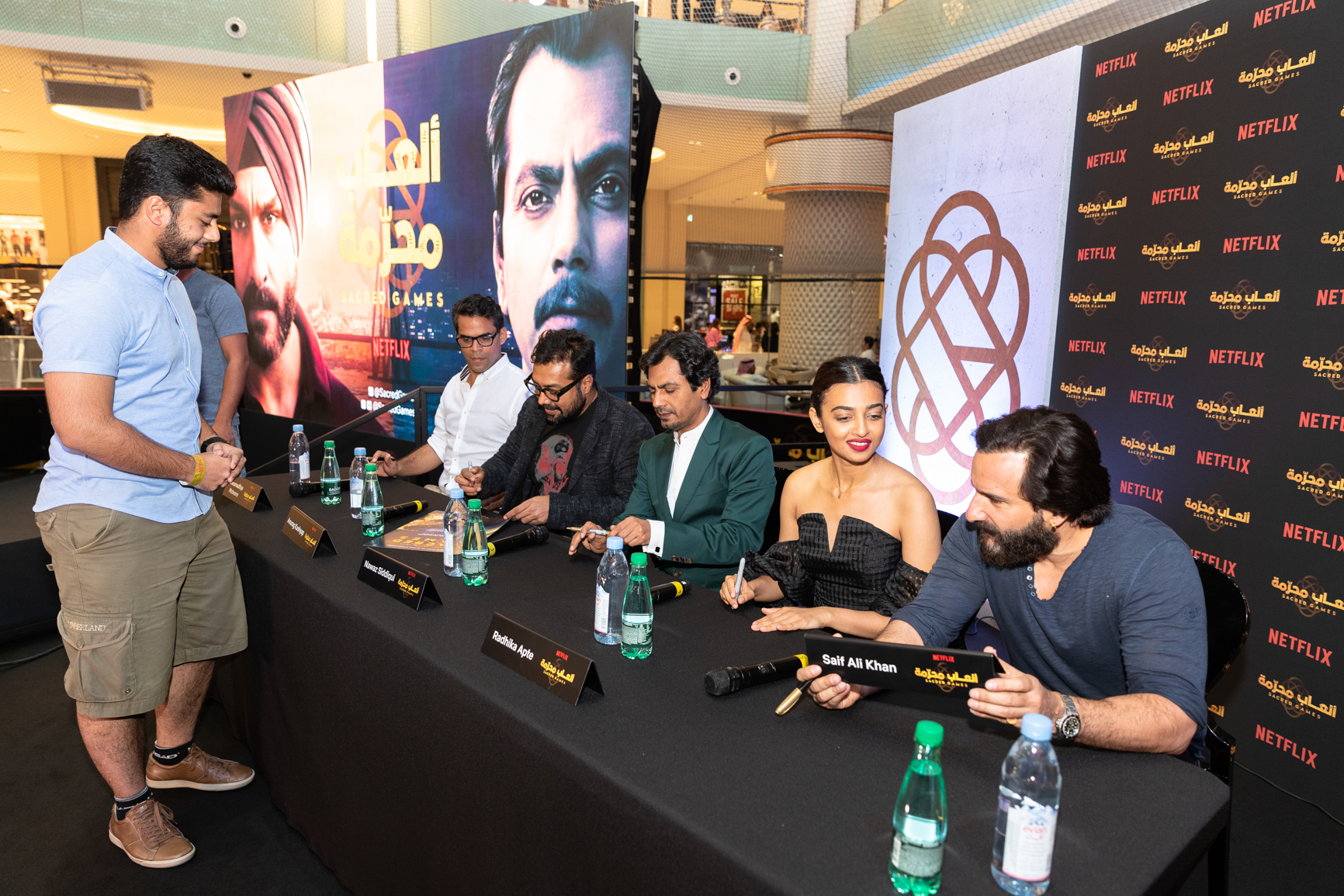
Anurag Kashyap and Vikramaditya Motwane, directors
About interpreting the novel into a script for a TV series, they said, “We had to change certain things because a novel and a dramatic TV series bring about to entirely different meanings. We stuck to the spirit of the book and the characters in the book but we changed a few things to make it more understandable, relevant and dramatic.”
“The novel was based in 2004 which is actually interesting because back then we had the same government that we have now.”
About the challenges they faced in production, they commented, “Production-wise, interpreting a novel from the 70s period is actually easier than interpreting a period from 15 years ago because of the difficulty of finding cars and telephones, for example. Finding cars from that period that actually move is also really hard.”
“It’s fun to get into the details of it. We could have made it as simple as but the mainstream industry is full of complexities. People like to be invested in multiple characters and in multiple [timelines]. And that’s the way we want to do it.”
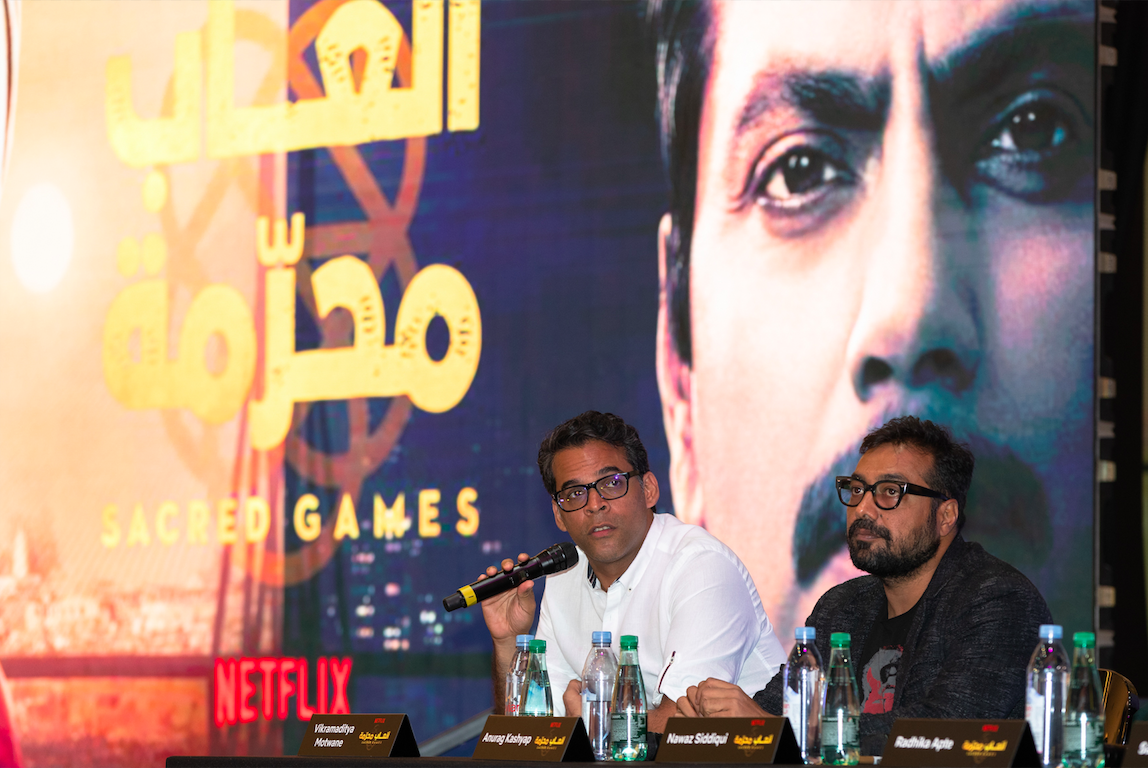
When asked how they manage to work together as directors with probably different ideas as to what should be done, they replied, “We stay ourselves. We don’t impose on each other and we decide on our different roles. This series actually needed two distinct voices with different ways of looking at things.”
“The opportunity Netflix presented us to be able to direct the first Indian original show and become a part of what the culture is already talking about was something not to miss. Everyone is trying to break out of the expectations of the mainstream but the audience and the system doesn’t allow them. With Netflix, we have the opportunity to break out without those fears but we also care about making something worth repeating. Netflix is reaching out to surprisingly new audiences that can appreciate a show that is so dark and so interesting without the judgment of an audience, even if they’re conditioned to some mainstream.”
When asked about presenting topics that may seem blasphemous towards religion in India, they said, “You have to be honest. It’s why our series resonates a lot. It’s because it’s based on truth. A lot of it is based on facts. Yes, we wanted to be careful but at the end of the day, you have to say it the way it is. It comes with the platform.”
“We were doing it for the first time. Obviously, we had watched enough shows to understand how the medium works. In the first few days, we went into it like any other feature film and then we realized that the directors needs to take a backseat to the writers and the actors to be able to tell the story in the most effective way possible. We actually enjoyed the process and I found the balance but it took some time to get used to.”
“It’s scary sometimes when you’re at a place that is politically volatile. We had a scene outside of a mosque where a Hindu man spits and tries to provoke someone. We had to cover him and shoot quickly and disappear. If hadn’t hid him and people saw that, it could have started something.”
“The sense of realism we want is so hard to create when you have so many extras and things, but when we put the actors in the middle of things, the realism of the place kind of seeps in.”
“Our casting team had done a very good job that made the job for a casting director so much easier. Because we’ve got so many interesting characters and a lot of it has to do with the writing, it was open for many different people, so you basically just pick the best act that you see.”
Radhika Apte playing Anjali Mathur
“I tried to build a character with the help of the writers and the director, and tried to portray it as realistically as possible.”
“We’re not making the series to represent Indian people in the most positive light. It’s about what the book has and what the characters are. Every character has lots of complexities and ups and downs and different sides. This series is about a very dark side of Bombay. It’s about everything. It’s about friendship, it’s about betrayal, it’s about redemption, it’s about violence, and it’s about organized crime and corruption. It’s about everybody – the privileged, the famous and the wretched. It has so many characters involved that it’s not really representing the people of India. We’ve tried to stay true to the story and the writer’s vision and his perception of Bombay at that time as much as we could.”
About how she thinks the show will perform, Apte said, “I’m just happy that it’s the first Indian original series on Netflix. I don’t think any other platform has a bigger reach than Netflix. I don’t think we could’ve asked for anything better so we’ll just keep our fingers crossed and whatever happens happens. We can’t really predict what will happen.”
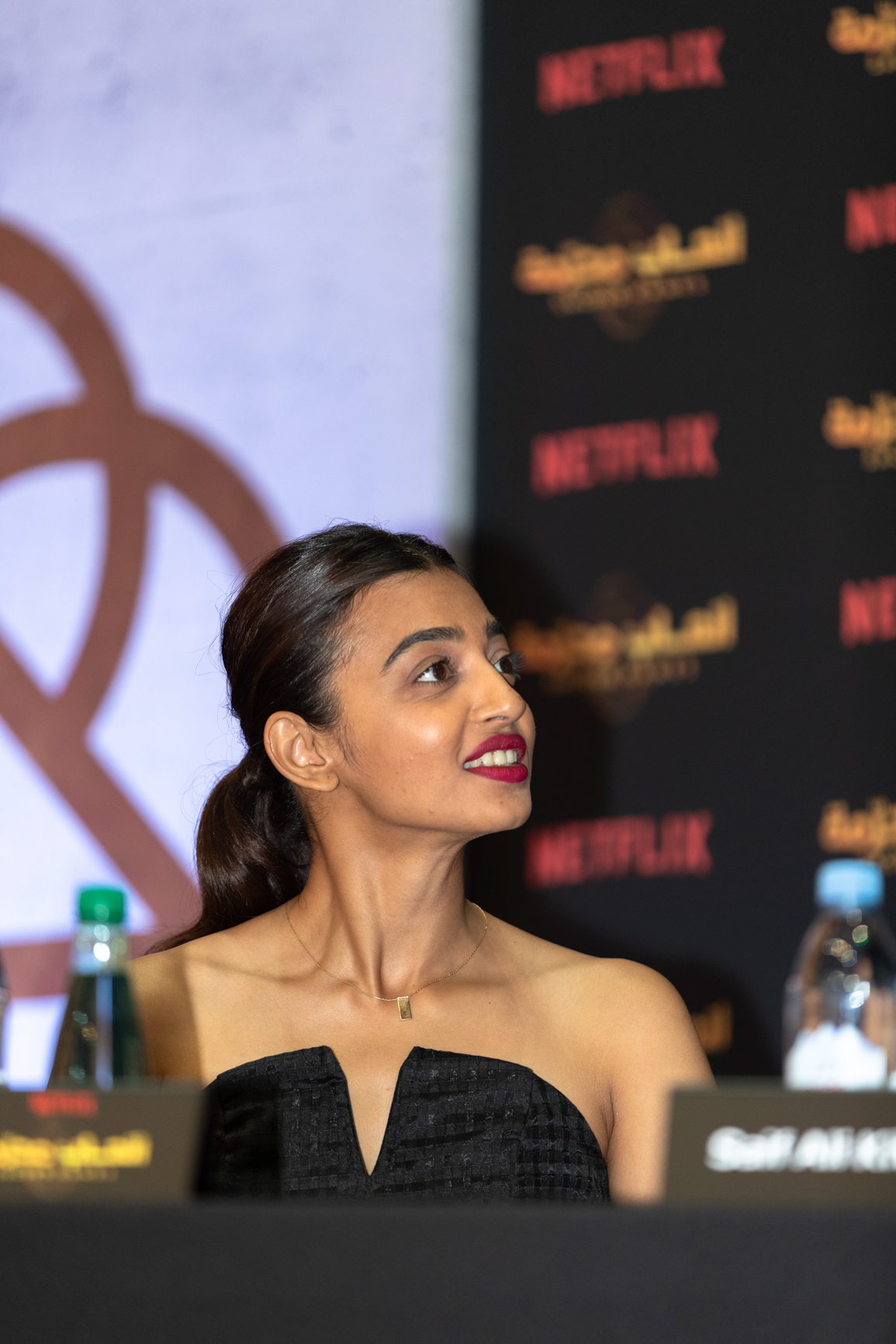
“I have never played a role like this. First of all, I didn’t know about RAW agents because they’re so secretive and you don’t know how walk and talk or what their field requires. There was a lot of research done and I was told a lot of things about them and I thought it was fascinating. You know how the image of CIA officer or a RAW agent is really cool? They are also cool in real life but our challenge was to portray the character in a very realistic way. I thought that was very exciting and I found the story great. The directors were people that I really love to work with and the cast was stunning.”
When asked what the acting experience is like without the censorship rules in India, “It’s very liberating and it’s actually more liberating than I imagined it would be. It’s not just about not saying some words here and there but it restricts you immensely. You need to be able to express and perform. You need to completely have the freedom to see where it’s going to go. So I realized (during this experience) that [the censorship] restricts you in more ways than you realize.”
When asked to comment about playing a strong female character in the show, Apte said, “I don’t make a strategy of trying to be a social activist or trying to boost women empowerment at all. If you look around in the real world, you’ll see most of the women are extremely strong, extremely independent, and extremely successful in all the fields, so why shouldn’t they be the same in cinema and TV series. I choose parts that I can simply relate to and that feel real to me and that I can see around me. Why are we shocked to see them on screen and talk about it like it’s unconventional? It’s the most usual thing that you see everyday when you wake up and get out of bed.”
“What I really took away from my character was her true passion and commitment to work. Her job is the most risky, difficult, extremely hardcore job and you don’t get anything back in the sense of acknowledgement or any medal or you don’t become a public figure. There is nothing like that because it’s supposed to stay a secret all your life. She only does it because she’s passionate about it.”
“I never tried to have an image. In fact, I’ve always tried to see that I don’t have an image so that people don’t get to categorize me in anything. I’ve also done roles which are completely different from one another. You can’t be worried about criticism in life. That’s a very integral part of what you do.”
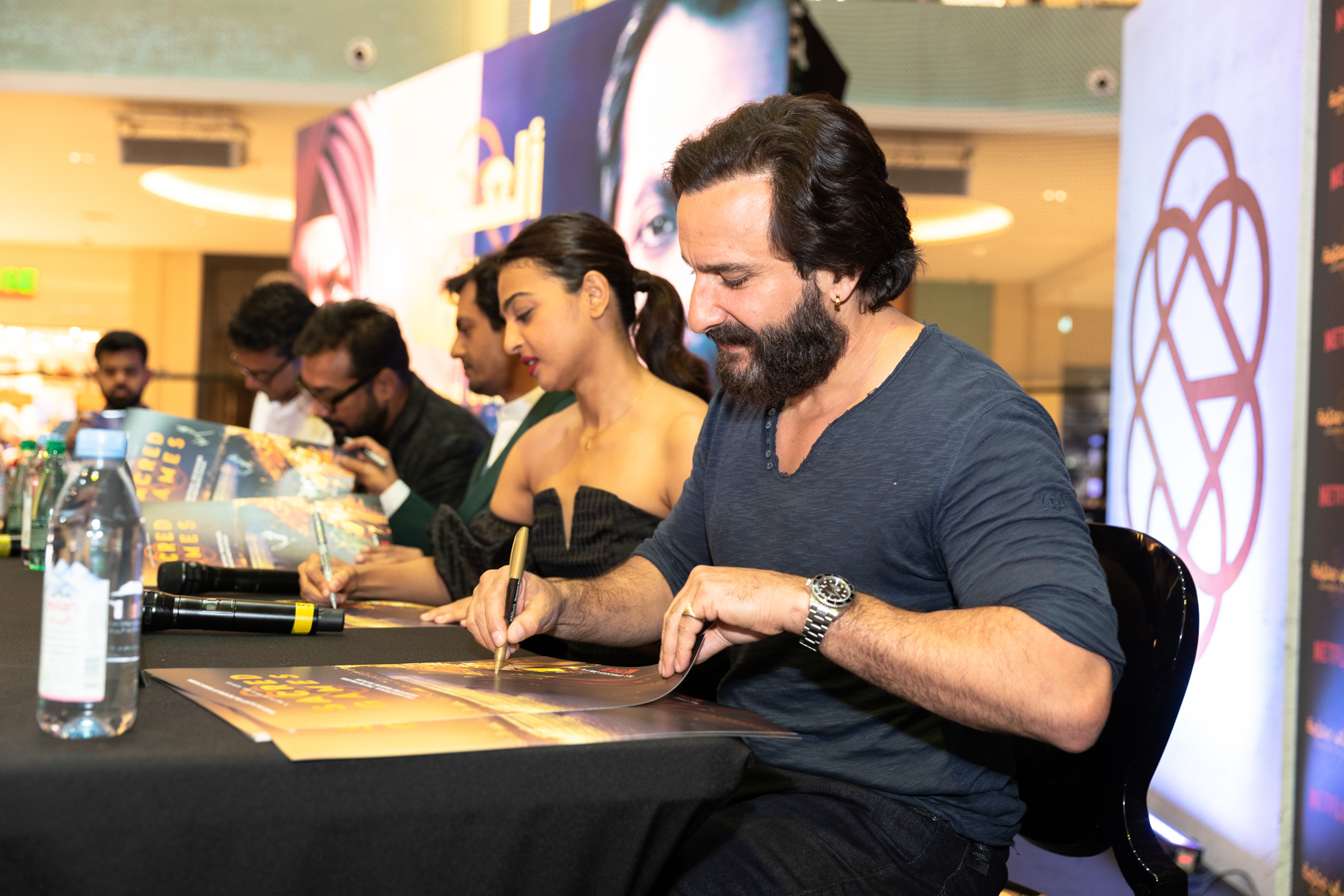
Saif Ali Khan playing Sartaj Singh
“The big screen is an exciting format to be presented on. I personally wasn’t very interested in wanting to be on television until I got this offer from Netflix because the platform is graphically exciting and artistic. There is also something premium about the kind of content, something challenging about my part and something massive about international release.”
“There is something about playing my character. There were physical changes required so I did some working out in the gym and went on a diet to put on a little weight. I also had to learn his language. He’s Punjabi so it’s a different dialect and a different language so it was very challenging but I think it went really well so I’m excited about how it turns out.”
“Some characters are heroic because of their superhuman strengths but Sartaj is more real to me because of how he conquers his many problems. He’s isolated in many ways and he’s an outsider, a loner and he’s got a lot of problems. That made him interesting to me.”
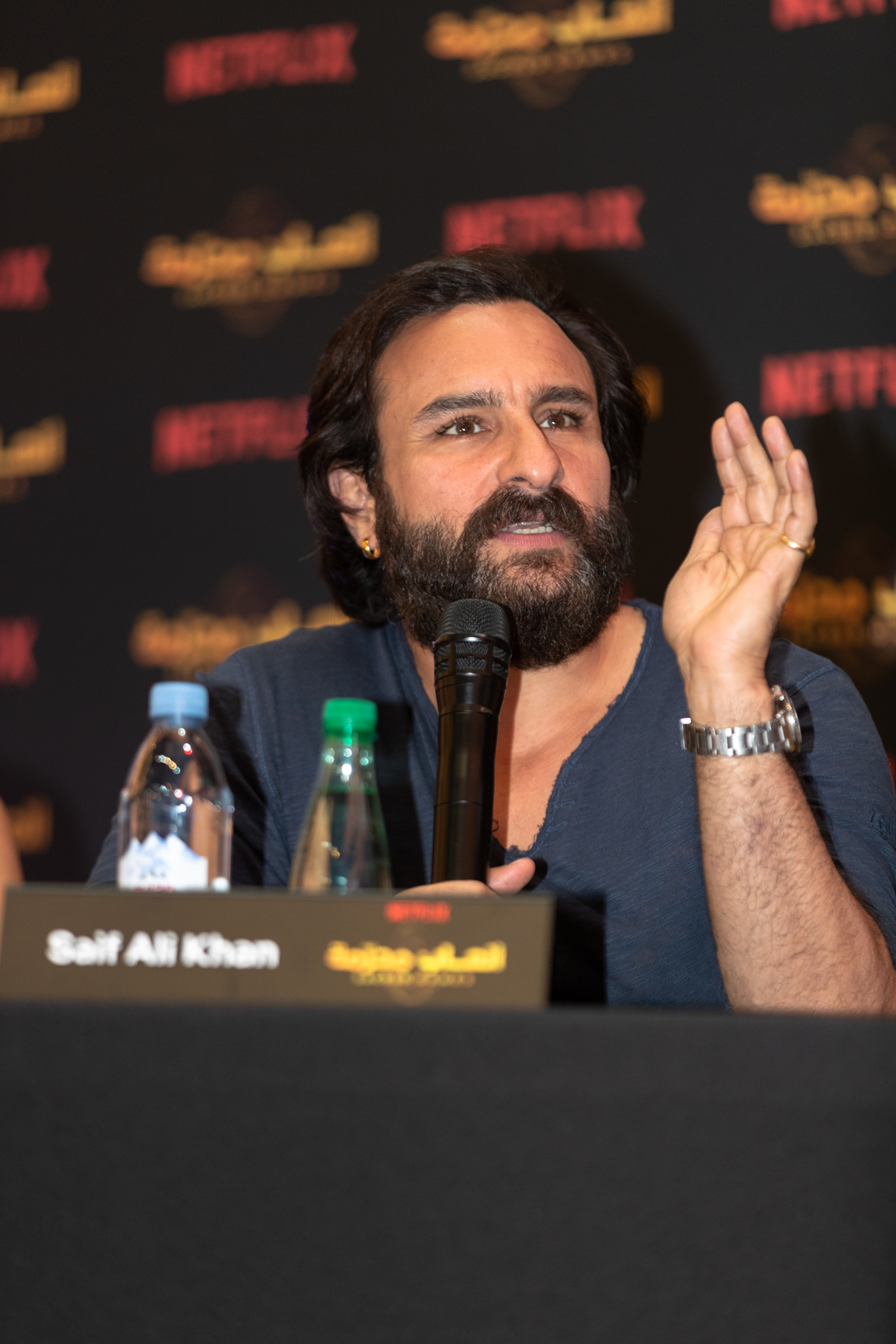
When asked whether he related to his character, he said, “Empathy with the human condition is a prerequisite for being a decent actor. In that sense, you connect to all human beings and all kind of problems. I don’t know how much I have in common with Sartaj. My life is very different but I can understand him.”
“The police is quite like most government jobs that are not well-paying so there’s a lot of scope for corruption but there is also scope for heroism and honor. [The show] is a good stage to showcase these issues.”
“It’s a very clearly defined part. It’s a beautifully written book, and basically you want to be in interesting situations. I like the fact that he’s honest and troubled. He’s an outsider in the police force, his religion and in his personal life, but he’s trying. There’s an arc from where he starts to where he finishes as a different person.”
“There are differences in rhythm sometimes. You know how a pop or rock song is different from an opera? It’s the same with comparing a movie to a streaming service because you’re taking more length in telling the story.”
“Good books happen in characters’ minds and films require much more. When you adapt a book, you very often have to write a fresh screenplay, really. These are changes that the writer and director make, not really me.”
Nawazuddin Siddiqui playing Ganesh Gaitonde
When asked about how he faced the challenges of playing his character, Siddiqui replied, “Ganesh definitely is a bold and brutal character. I overcame the challenges of portraying him by having a director helping me throughout and a very detailed script. I’ve obviously never played a role like this before.”
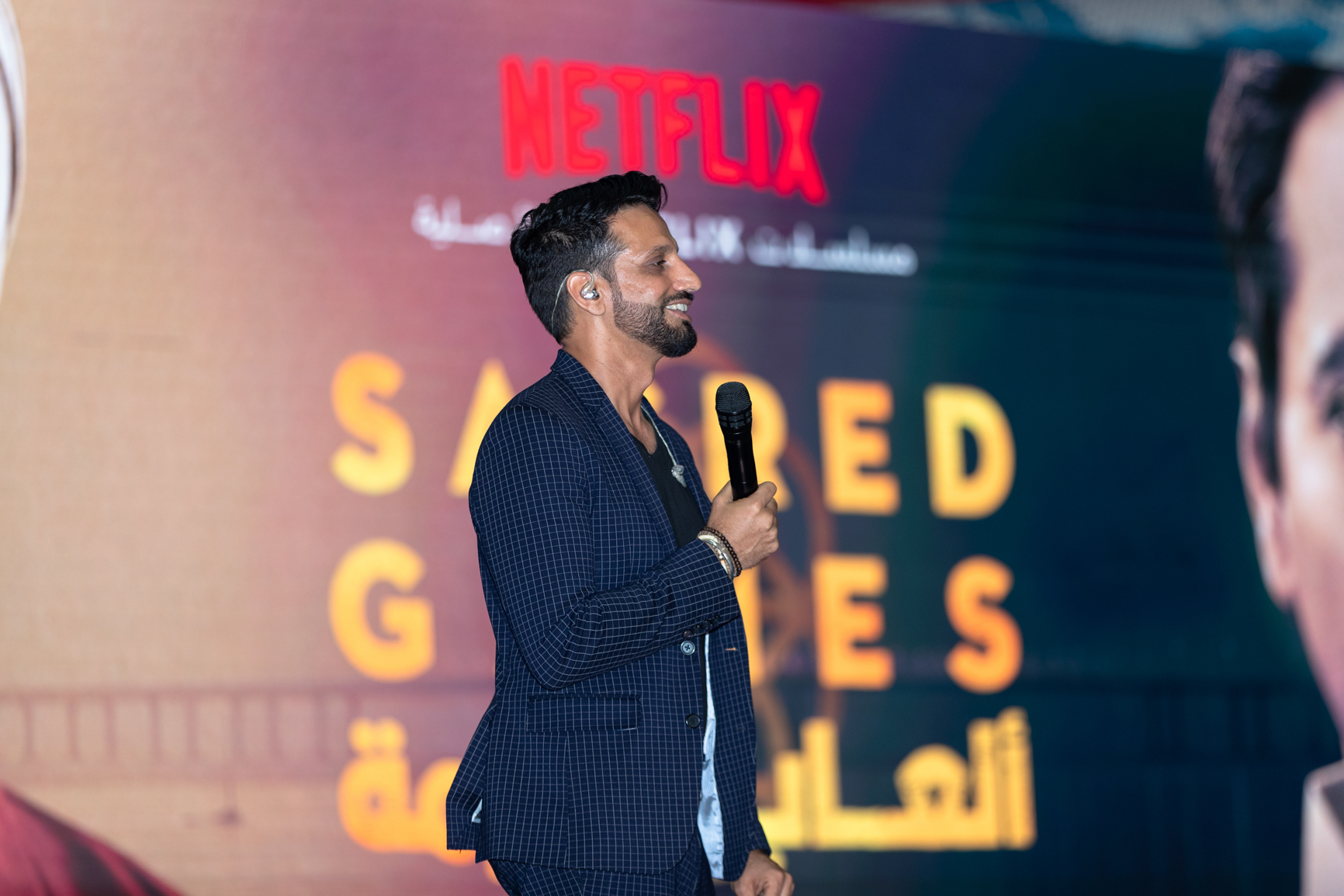
When asked about his ability to relate to his character, Siddiqui said, “I was never as ambitious as my character is. Yes, we both came from a small village but that’s the only similarity we have. The character also had a very terrible past and a disturbing childhood that I didn’t face.”
On whether Indians will receive this show with open arms, Siddiqui said, “It depends on the society because back in India, everyone wants be white collar. Whether they accept the idea of the show or not, it’s up to them. The best part about Netflix is there are no limitations. It’s a good environment to cultivate creativity because you don’t have to think about [censorship or restriction]. It’s not the same with Indian films because you have to give second thought to every dialogue in the movie.”
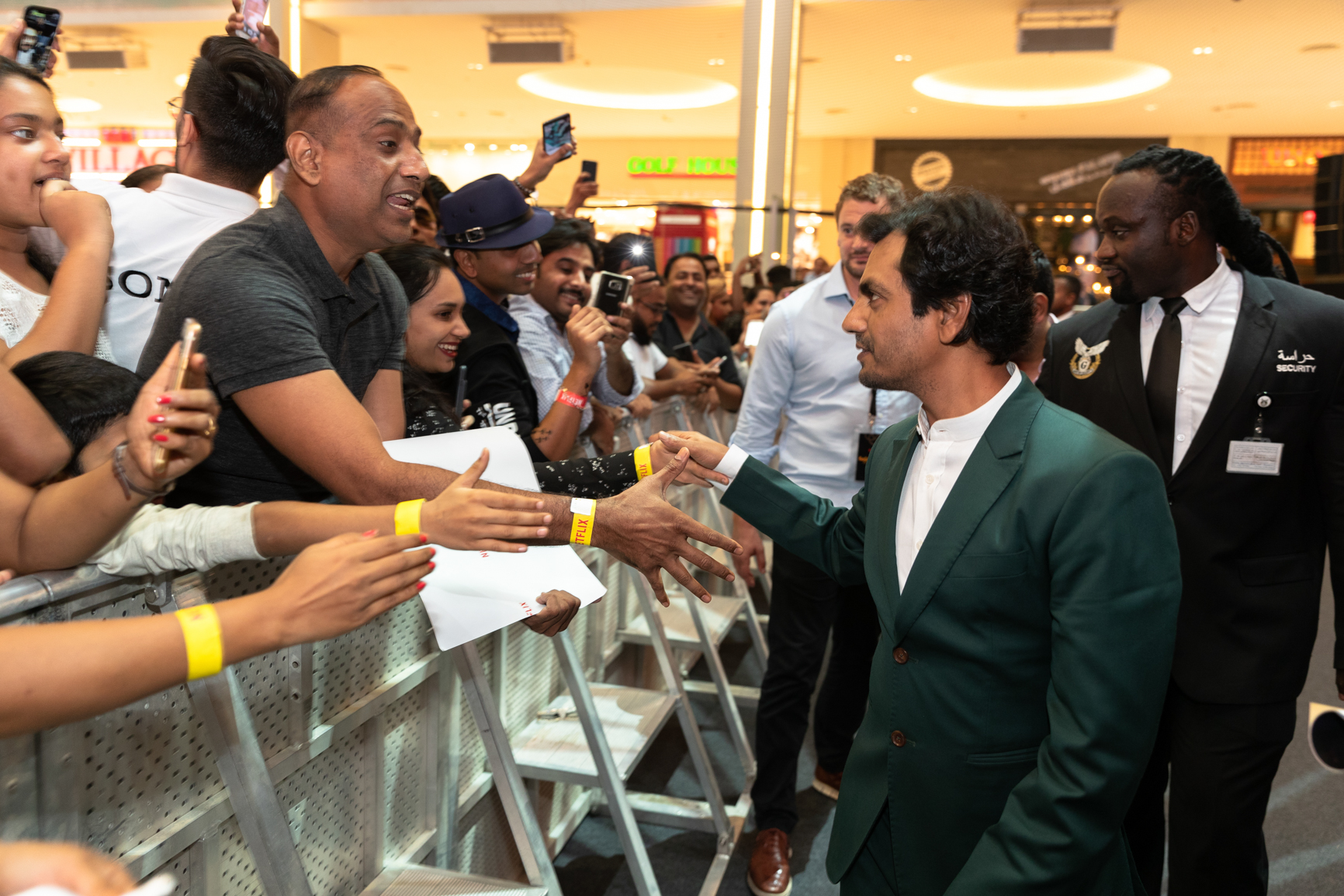
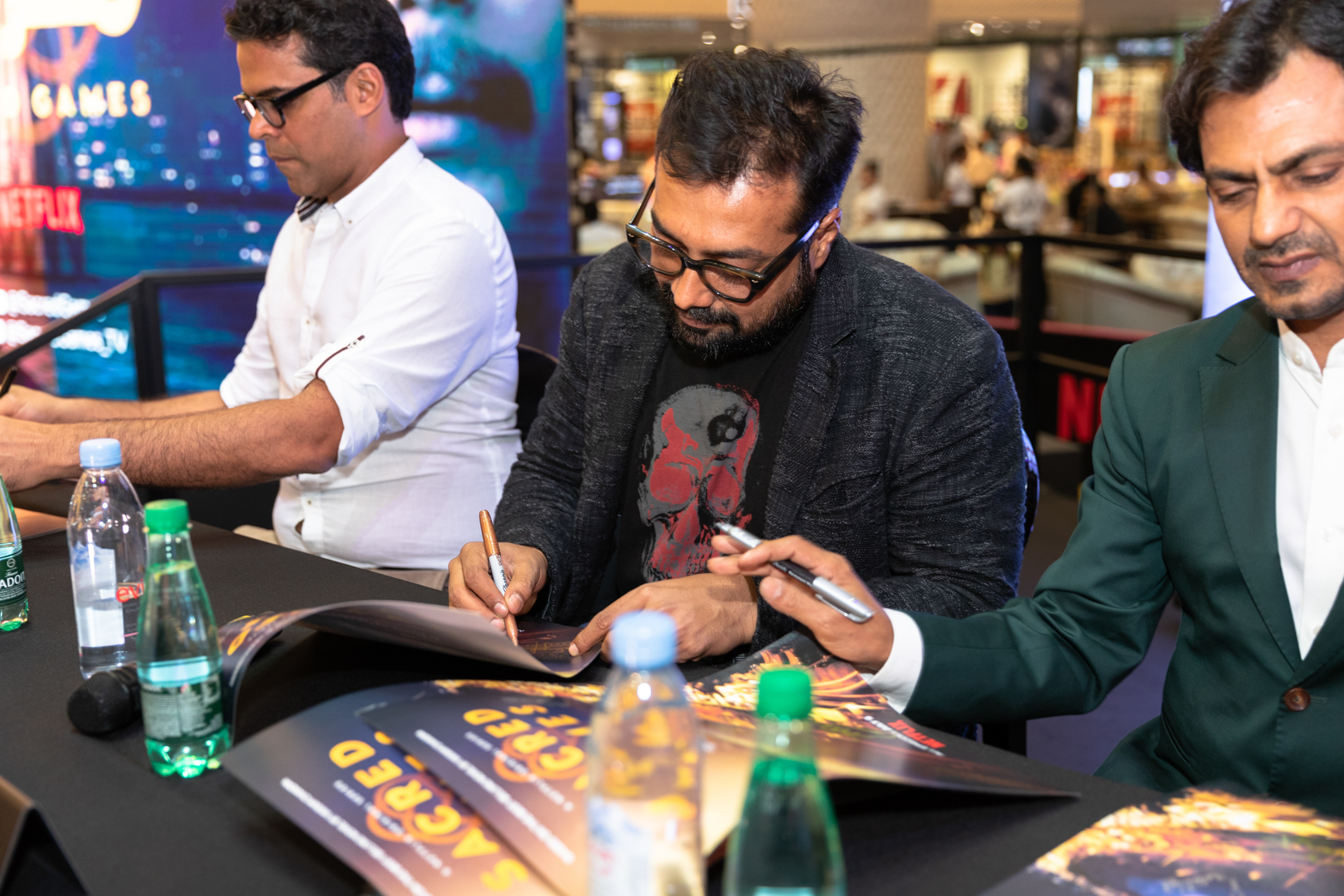
All photos are from the Fan Event that took place at Dubai Mall on the 27th of June.
By Sarah Guirguis



